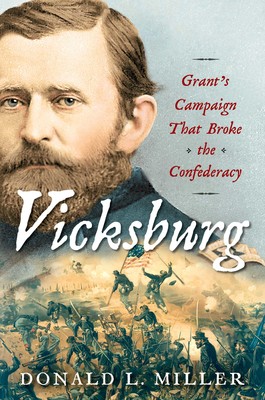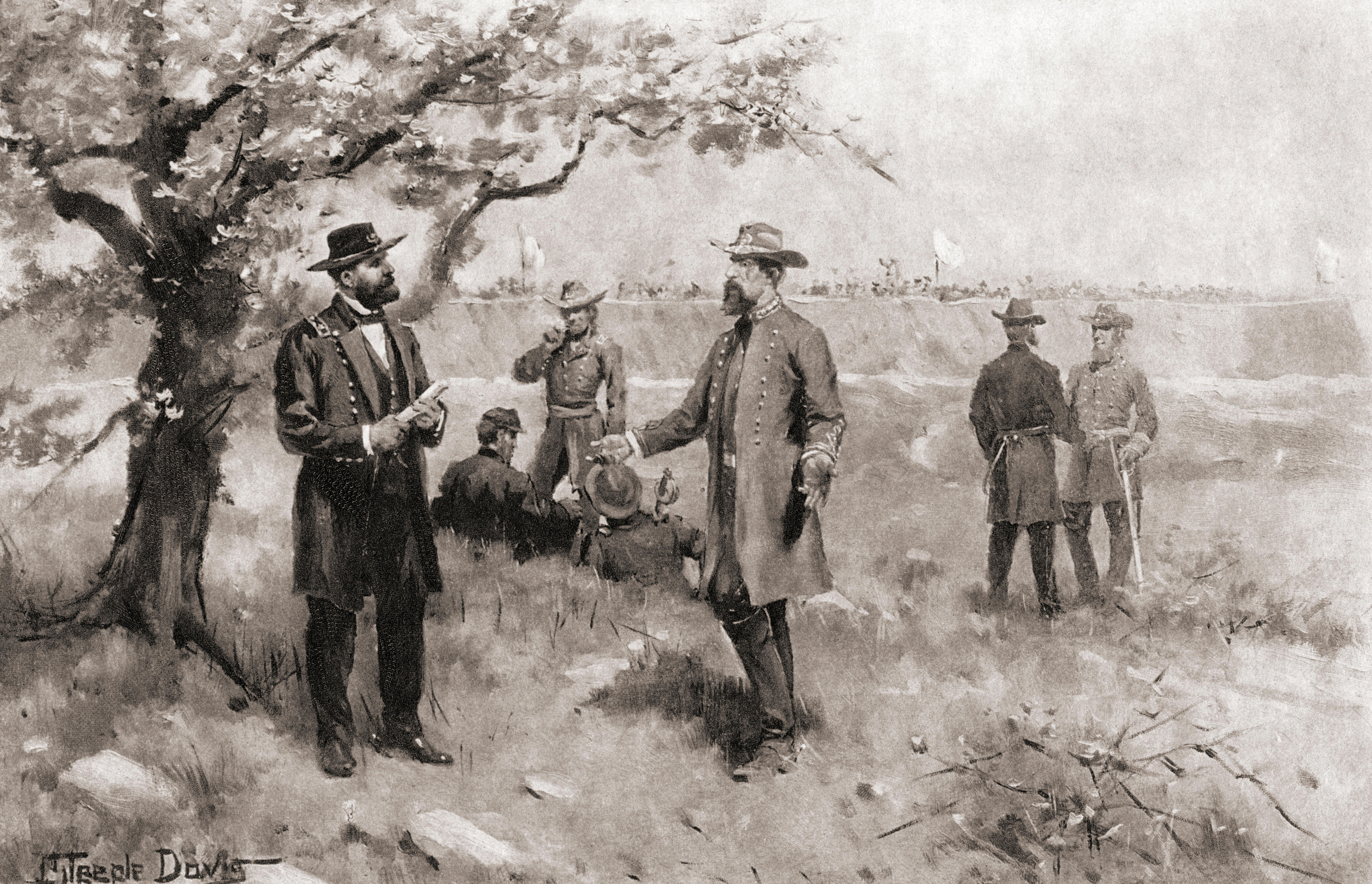Grant learns from his mistakes and finds comrades in command in Porter and Sherman
In Vicksburg: Grant’s Campaign That Broke the Confederacy, Miller focuses on both military and political affairs in order to explain the significance of Grant’s victory. Divided into four parts and spanning 23 chapters, Vicksburg is a hefty campaign history. Yet, as the subtitle indicates, Miller focuses heavily on Grant. Although Vicksburg includes the accounts of soldiers and civilians, Grant is the principal character, which provides a top-down view of the campaign. Miller does an excellent job of illustrating Grant’s growth as a commanding general. Glaring mistakes were made by Grant at both Fort Donelson and Shiloh, but as Miller contends, he was able to learn from his mistakes, gain experience, and grow into the finest general in the West.

By Donald L. Miller
Simon & Schuster, 2019, $35
Miller’s chronological approach demonstrates the breadth of Union activity along the western rivers and the extent of their efforts to take Vicksburg. Rather than beginning his history at Chickasaw Bayou or with the fighting around Grand Gulf and Port Gibson, Miller starts in the summer of 1861 at Cairo, Ill. The campaign for Vicksburg, Miller emphasizes, began there. With its strategic location at the far southern point of Illinois—where the Ohio River empties into the Mississippi River—Cairo became the focal point for military action in the Mississippi Valley region.
Joint operations between the western Union Army and Navy was key to the fall of Vicksburg. From the organization of an army at Cairo to Vicksburg’s surrender, gunboats and troop transports enabled Grant’s ground forces to engage and defeat the Confederates. David Dixon Porter, commander of the Union’s Mississippi Squadron, and Grant made a formidable command pairing. Miller impresses the point that both were aggressive and strategically smart, and they worked well together as capable and cooperative commanders. Still, Miller goes beyond the military to note the campaign’s social impact. Grant’s campaign directly undermined the plantation complex as thousands of slaves fled to Union lines and countless white masters abandoned their plantations with the approach of Federal forces.
Well-written and narrative-driven, Donald Miller has provided a book that offers a thoughtful reconceptualization of the Vicksburg Campaign by taking a broad chronological approach and pairing military and political affairs. By connecting military success to the destruction of the region’s slave system, Miller has produced a model work that ties together military and social history. To break the Confederacy, both military victory and slavery’s destruction were necessary. Grant’s military operations in the Mississippi Valley in 1862 and 1863 achieved both.





